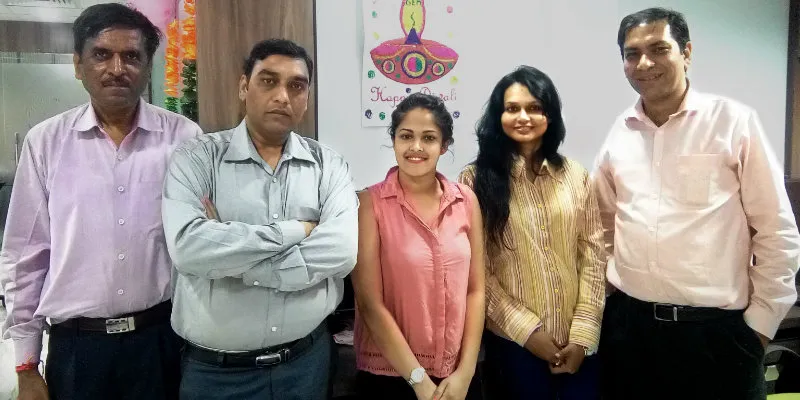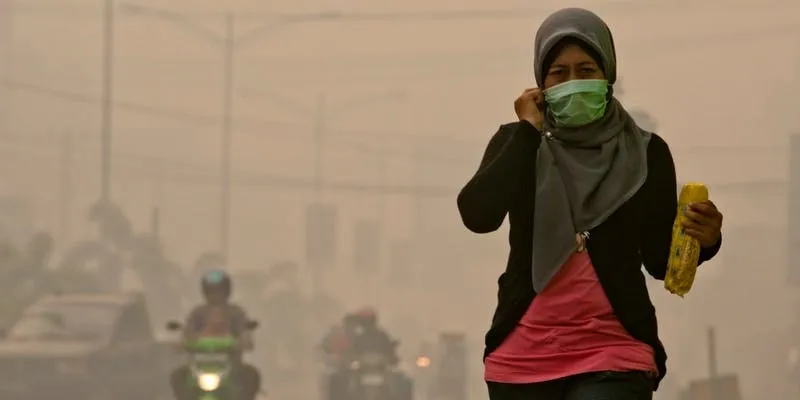Plastics, pollution and public participation: these startups are changing things for the better
From encouraging citizens to help solve farmer issues to beating the use of plastic and reducing our carbon footprint, a handful of startups have come up with innovative ideas to make the country a better place to live.

As we step into the new year, we stand a chance to address multiple challenges India faced in the year gone by. Citizens can now help create social impact by participating in multiple activities and empowering the marginalised communities.
For example, by switching to recycled fabrics compared to a new suit made from recycled materials like cotton, silk, and linen, one can curb the release of an estimated five kg of carbon dioxide while conserving 6,500 litres of water. Today, urban dwellers can financially empower the farmers by working with startups who are reducing the urban-rural divide. Even vacations can become a tool to empower the native tribal communities and help reduce carbon footprint when one chooses eco-friendly travel.
Active public participation through startups can help mitigate multiple problems such as agrarian distress, rising pollution, and help conserve the environment. YourStory lists a few startups addressing social issues.
1. Supporting farmers and the agrarian community

The news about the distress faced by the agrarian community is not new. The extent of the challenges faced by farmers even forced them to participate in multiple protests last year. While the government is devising ways to address the challenges of water shortage and crop pricing, citizens can also do their bit to help the agriculture sector.
Multiple startups today are encouraging public participation in agriculture. For instance, Bengaluru-based Farmizen enables an individual to grow chemical-free organic food in a mini-farm. By paying just Rs 2,500 as a monthly subscription fee that includes the monthly rent to the farmers, individuals can grow vegetables of their choice as per the season in the twelve beds allocated to them in their mini farm. They get to control the farm through an app just like Farmville and can visit the farm anytime and harvest their own produce.
Similarly, Chennai-based startup, I Support Farming, brings both farmers and urban citizens on a common platform and supports the agriculture community through partnerships.
“One of the challenges faced by farmers is the lack of capital. This is what we wanted to address. Hence, we formed an urban public and rural farmers’ partnership — a system where all the capital needed for farming is provided by the urban people, and the work is done by the farmer. The farming profits, towards the end, are shared between the farmer, the urban investor and I Support Farming,” says Vijay Kumar, the founder of I Support Farming.
2. Promote sustainable and circular fashion

The textile industry is one the most polluting industry after oil and gas. Globally, 40 percent of all clothing produced is thrown away and only one percent of textiles are recycled. The fast fashion culture, where garments are discarded long before their life is over, takes a huge toll on the environment - be it the amount of water, fertilisers, pesticides used for cotton cultivation, or the number of cotton scraps that come out of garment industries.
With ‘carbon footprint’ and ‘water footprint’, which measure the eco-friendly nature of an enterprise, gaining prominence; brands, designers and consumers have become increasingly conscious of their choices.
For instance, Bengaluru-based Khaloom, founded in 2016, aims to promote the use of recycled textiles and reduce the amount of cotton that continues to end up in landfills, while reducing the overall water footprint and pollution by the fast fashion industry by introducing discarded textiles back into mainstream fashion.
Delhi-based Doodlage upcycles and recycles clothes to produce fashionable outfits for those in the age group of 18 and 45 years. The waste collected at Doodlage during the process of upcycling is used to make home furnishings and bags. Kolkata-based fashion designer Paromita Banerjee insists on not seeing recycling as ‘jugaad’. She mixes discarded materials with Khadi and colours to develop new clothes, the composition of each being different.
These startups instil the old school learning of ‘best out of waste,’ while helping us to conserve the environment.
3. Beat plastic pollution

It is a reality that plastics today have become an integral part of our lives. The day starts with a plastic toothbrush and often ends on a pillow with components made of plastic. To shun plastic completely is perhaps a very difficult task, especially in areas such as medical treatment and food preservation. Although only nine percent of plastics has been recycled globally till date, many states are now banning the use of single-use plastics or disposable plastics.
Today, multiple startups and social enterprises are working to facilitate reducing and recycling of plastic and helping urban dwellers upcycle waste. For instance, Delhi-based Reverse Vending Machine (RMV) not only collects empty PET bottles and aluminium cans through smart bins but also rewards the user for recycling by offering them either cashbacks or discount vouchers.
Khalibottle, a Bengaluru-based startup, is also on a spree of converting trash to cash. The startup has created an online platform where customers - individuals or corporates - can register for their waste to be collected for recycling and get paid for it as well. The trash is collected, segregated, and packed according to predefined categories such as soft plastic, pet bottles, glass, cardboard materials, and metal. The stock is then sent to authorised recycling plants around Bengaluru, Mysuru, and Hyderabad for recycling.
4. Reduce carbon footprint (Eco-friendly tourism)

People are now travelling more than before. People from various age groups, even from smaller towns, are choosing experiential travel as an investment on gaining a fresh perspective for personal growth and holistic enlightenment. Be it the Himalayas, Spiti Valley, Ladakh, Karnataka or Odisha, experiential and eco-travel options have become a popular travel option for people of all age groups.
Multiple startups have taken the leap and have ventured into sustainable and development based tourism. For instance, Ecosphere, founded by Ishita Khanna located in Spiti Valley, is an organisation that promotes responsible and sustainable ecotourism with an approach that simultaneously tackles economic empowerment with conservation and sustainable development. Founded in 2004, it began its projects when the concept of homestays, was alien to most.
Hyderabad-based Offbeat Tracks focuses on experiential, and sustainable travel across India. Set up in April 2016, it works with various rural communities, integrating with the local population. The startup aims to promote eco-tourism among local and rural communities in the Himalayas, advancing the concept of sustainable and experience-based travel, and creating rural microentrepreneurs through the concept of homestays and local experiences.
5. Segregate waste at source

Urban households in India generate over six crore tonnes of garbage every year, of which a whopping 85 percent is recyclable. Unfortunately, most of this waste ends up in landfills, polluting the soil, air, and water. While waste management is a huge problem, it is also a large opportunity in India.
According to a report published by market research company NOVONOUS, India’s waste management market will be worth $13.62 billion by 2025. With the Swachh Bharat Mission aiming at more public-private partnerships, multiple startups and NGOs are working to reduce the waste at source.
Bengaluru-based Hasiru Dala caters to over 25,000 households in the city and manages more than 700 tonnes of waste every month. The non-profit provides waste management solutions to apartments, offices and at events, and also helps design, set up and maintain urban gardens.

Delhi-based GEM Enviro Management collects polyethylene terephthalate (PET) waste from factories, offices, hotels, and institutes, and recycles them into products such as t-shirts, caps, and bags. Similarly, Chennai-based Paperman runs over 250 waste paper marts across the city to help citizens clear trash at their doorstep.
These startups, along with many more small and big organisations, are helping urban India battle the complex problem of waste management.
6. Fight air pollution with greenery

Poor air quality in Delhi is no more limited to winters or dust storms. According to the World Air Quality Index, air quality in Delhi touched hazardous levels in June 2018, with areas in the national capital registering an air quality index value (a composite measure of ozone, nitrogen dioxide, sulphur dioxide and particulate pollution) of 999. Experts say that exposure to high levels of air pollutants raises the risk of respiratory infections, heart disease, stroke, lung cancer and multiple other health conditions.
However, India’s alarming pollution levels posed a significant market opportunity for global brands. Big players like Honeywell, Havells, Daikin, Panasonic, and many others have entered the Indian market with their anti-pollution offerings.
Several startups have also entered to disrupt India’s air purification market with affordable and made-for-India air quality monitors, masks, purifiers, and other products.

Chennai-based PKR Green and Consultants home deliver various air-purifying plants, including Golden Pothos (money plant) that removes airborne pollutants such as benzene, formaldehyde, carbon monoxide and xylene; English ivy, which removes pollutants such as benzene, formaldehyde and trichloroethylene from the air; and Areca palm, which filters xylene and toluene from the air. The startup’s primary goal is to ensure there are more plants in homes, offices, complexes, malls, and study centres.
Students from IIT Delhi, who are part of the non-profit international organisation Enactus, have made a low-smoke emitting stove to tackle household air pollution. Called as Project Aanch, the students have devised a low-smoke stove based on a design by Philips. The stove consumes only a third of the wood compared with the traditional chulla.







